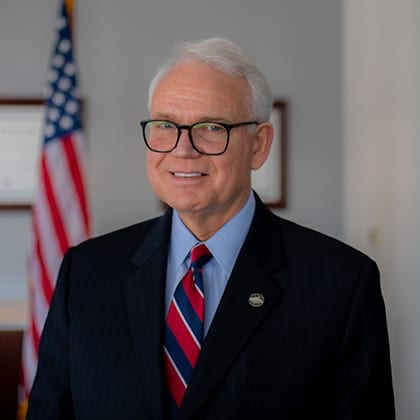Originally published by the Deseret News.
The next generation is well on its way to assuming leadership roles both in business and politics. More and more often, while scanning LinkedIn, I see the name of a young executive and think, “My kids grew up with someone by that name,“ only to realize that executive is the someone my kids grew up with.
As this new generation of leaders emerges, we should keep in mind that their leadership will be shaped by the events of their lifetime. Just as baby boomers have been influenced by events like the civil rights movement, high-profile assassinations and the moon landing, the priorities of millennials and post-millennials have been affected by the Gulf War, social media, 9/11, “fake news” and too many school shootings to list. How will their formative experiences translate into priorities as they lead this nation through their chapter of the American story? Do we have confidence that, despite our generation’s current violations, they understand the founding virtues and principles upon which freedom is conditioned?
I was given a hopeful glimpse of our future during a conversation over lunch with a longtime friend. He brought along his son, who’d been a toddler the last time I saw him. The conversation turned to politics, and I asked this bright young man his view of politics and political leaders.
His reply was not that of a disengaged kid. Rather, it reflected a depth of understanding of a problem that must — and can be — addressed by his generation. In his view:
“Our Founding Fathers jeopardized their wealth, power and comfortable lives in order to achieve the freedom we enjoy today. Many — even most — politicians today seem willing to jeopardize our freedom to maintain their wealth, power and comfortable lives.”
This thoughtful summation was neither selfish nor uninformed. Nor did it sound entitled. To the contrary, it described the attitude of entitlement found among current leadership and his generation’s longing for a different tone. I wondered if perhaps we’ve been ascribing the term “entitlement” to the wrong generation.
We should have complete confidence in future leadership — if they understand just a few basics. First, America was and is an assembly of ideas — it is a system carefully designed to overcome the failures of all previous forms of government. If we are having trouble with it today, the problem is less likely the degradation of the framing and more likely a change in we the people.
Second, they should continue to objectively consider the tone of an older generation in positions of leadership today — leaders who are questioning whether the Constitution as a basis of government “is still relevant.” They should assess both the question and the leaders asking it. If some elected leaders now doubt the most intentional document ever to define a government — one seeking to establish immutable and unalienable rights coming from a Creator (not a king) — they should question both what has changed and who has changed.
Third, they should ponder whether democracy and freedom are a burden — or a blessing. Are the necessary constraints for the greater good now too limiting? Have our perceptions of public service changed irreversibly to selfish ambitions?
Finally, I would hope they would come to recognize that all these questions were asked — and answered — by our Founding Fathers. Their recorded histories and struggles are the best “life hack” a future leader could ask for.
The Constitution was designed not to expire, but to endure. However, the values necessary to the continued prosperity of a democratic republic seem to be nearing expiration. The freshness of our engagement, our willingness to sacrifice and consider principled compromise, our respect for one another — all show signs of fatigue. As for public service, servant-leadership has been replaced by individual quests for power and influence. Yet we dare call the next generation entitled?
If future leaders can apply all they have experienced through their formative years while remaining true to our founding virtues, they will realize we are not suffering the constraints of a dilapidated or obsolete constitutional structure. Rather, we are on solid ground. It is within the capabilities of the next generation to understand that where we are today is simply what happens when you abandon principle in this ever-evolving experiment called democracy.
When I come face to face with young leaders — at a lunch, or at work every day — I find they are, as a group, capable of applying their life experiences in meaningful ways — and they are well-equipped to update and remodel the vision of freedom for this century. I also submit that they can do so while standing firmly on a stable and virtuous foundation.
More Insights
Read More
What you need to know about the upcoming state party conventions
The two major political parties are about to hold their state conventions. Here’s what you need to know.
Here’s why the First Amendment’s religion clauses are not in conflict
Some suggest there is a tension between protection for the free exercise of religion and the prohibition on the establishment of religion. But a better take is to see the two clauses as congruent.
Is California’s minimum wage hike a mistake?
Is raising the minimum wage a good tool to help low-income workers achieve upward mobility? That’s the key question at the heart of the debate over California’s new $20 an hour minimum wage law for fast food workers.



